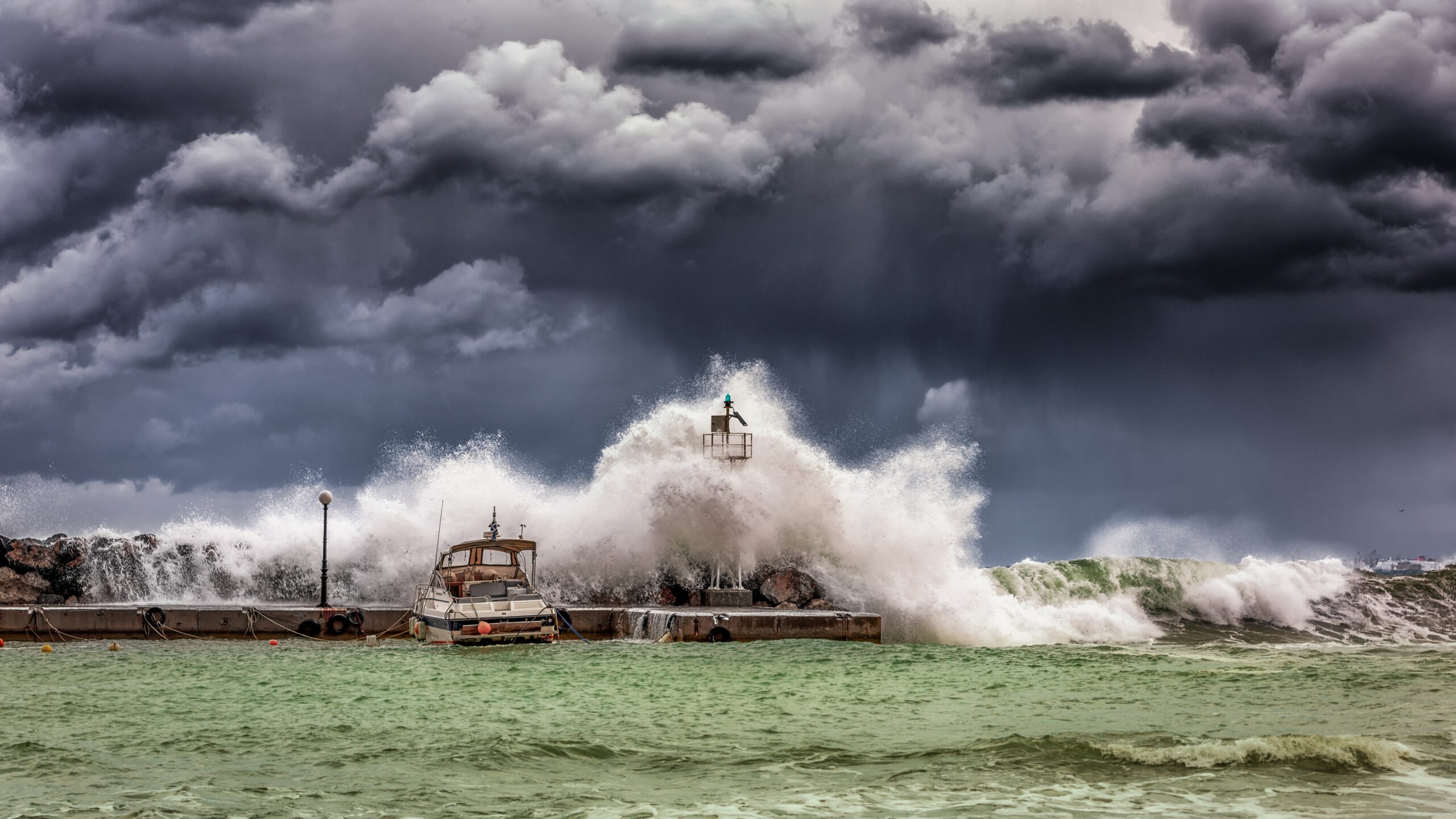How to Prepare for a Hurricane
The process of preparing for a hurricane can be a bit intimidating, especially when a storm is approaching. Making sure your boat is ready before the storm hits is vital. For coastal boat owners, it’s crucial to be proactive and prepare for hurricane season because there is always a risk of one hitting directly or indirectly.
There are several items to consider before, during, and after a hurricane. Here’s how to prepare for a hurricane:
- Create a hurricane plan
- Stay informed on weather reports
- Move the boat to safety
- Prepare to batten down the hatches
- Mitigate potential blows
- Secure personal items elsewhere
- Don’t ride out the storm onboard

Take a look at how to prepare your boat for a hurricane with a hurricane plan.
Create a plan
Put together a hurricane plan and checklist ahead of time so you can act quickly when the time comes.
Start by determining whether you can relocate your boat – most recreational powerboats can be transported while sailboats and other large vessels are not. If you can transport your boat, you should have a place inland available and know the route you will take there.
It’s essential to practice your plan at least once, so you’ll know how long it takes you. This will also ensure that you have all the necessary supplies on hand. Plan on storing extra straps, dock lines, fenders, and extra supplies as an additional precaution.
Stay informed
While boating is a great way to disconnect, during a hurricane (or any extreme weather), you need to keep up with the latest information.
Smartphones are a great way to stay informed and receive alerts on forecasts. It’s recommended to check the National Hurricane Center website for the most up-to-date information on hazardous tropical weather. Due to hurricane winds and rain, power outages are expected. It is best to keep a small battery-powered emergency radio, so you don’t miss any critical updates.
Advance warning is the most effective way to keep yourself, your family, and your boat safe when you’re in the path of a hurricane.
Higher ground or batten down
If your boat can be trailered, it is recommended to get it out of the water, move inland to a higher elevation, and away from the storm’s projected path.
For the boats that can’t be moved, it’s time to batten down the hatches. Ensure the vessel has fully charged batteries so the bilge pumps will continue working. Securely tie your boat to the dock – the more dock lines, the safer your boat will be. Cushion any potential blows with as many fenders as possible to protect it from impact. Drop an anchor at the front and rear, and make sure they are well set.
Know your policy
Familiarize yourself with your marine insurance policy.
Storms can be unpredictable, but your insurance policy should be evident. Not all insurance policies cover storm damage, so you’ll want to learn what requirements are under your current policy. Read all the available information and determine whether it is sufficient or if you need additional coverage. For additional insurance options and tailored plans, request an insurance quote with Boats for Sale.
Take inventory
Take pictures and video of your boat and its contents as evidence in case there is any damage.
There are boat insurance companies that require a detailed inventory of contents. Check with your insurance agent for more information to ensure you are prepared.
PRO TIP: Take photos of all your prep work for potential insurance needs.
Keep values secure
Minimize the risk of losing valuable items by taking them off and putting them away.
Remove all materials that increase your boat’s surface area, which can be torn by high winds. Take any expensive items that can be removed off the boat and store them safely and securely. Don’t forget to disconnect and cover any electronics that can’t be removed, aside from the bilge.
Don’t try to ride it out
Getting off the water is the safest way to handle a hurricane.
Staying on board severely compromises your safety and is not worth the risk. There’s not much you can do for your boat once the hurricane hits. Every storm is different, and there’s no guarantee that you will successfully weather the storm. It’s simple, do not stay on your boat and evacuate if local officials tell you to.
Hurricanes are unpredictable and extremely powerful, so the more you plan, the better. Add additional protection with an extended marine contract. Extended service contracts cover your boat’s engine, steering, v-drive, ignition, and other essential mechanisms and features. Plus, in some cases, these warranties are transferrable to future owners, which is helpful with resale.
